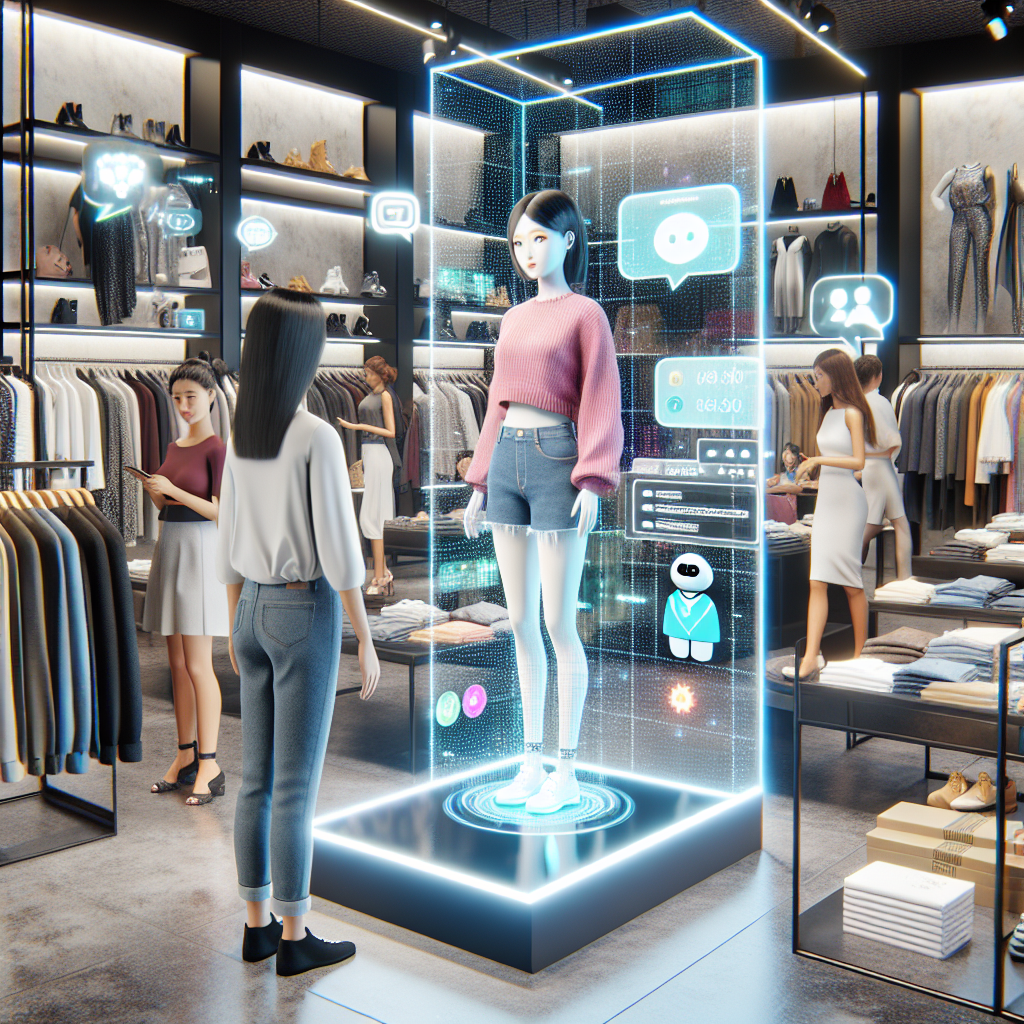In recent years, artificial intelligence (AI) has been revolutionizing the fashion retail industry, especially when it comes to customer service. Virtual assistants and chatbots powered by AI have become essential tools for enhancing the customer experience, improving operational efficiency, and increasing sales. In this article, we will explore the role of AI in fashion retail customer service, focusing on virtual assistants and chatbots.
AI-powered virtual assistants and chatbots are becoming increasingly popular in the fashion retail industry due to their ability to provide personalized and efficient customer service. These intelligent technologies are capable of understanding natural language, analyzing customer data, and responding to inquiries in real-time. By leveraging AI, fashion retailers can offer 24/7 support, streamline the shopping experience, and drive customer engagement.
Virtual assistants and chatbots can assist customers in a variety of ways, such as answering product-related questions, providing styling tips, offering recommendations, processing orders, and handling returns and exchanges. These AI-powered tools can also help customers find the perfect outfit, suggest matching accessories, and notify them of new arrivals or promotions. By offering personalized and relevant assistance, virtual assistants and chatbots can enhance the overall shopping experience and increase customer satisfaction.
One of the key benefits of using AI in fashion retail customer service is its ability to handle a large volume of inquiries simultaneously. Virtual assistants and chatbots can interact with multiple customers at the same time, providing quick and accurate responses to their queries. This not only improves operational efficiency but also reduces the wait time for customers, leading to a more positive experience.
Furthermore, AI-powered virtual assistants and chatbots can help fashion retailers gather valuable insights about their customers’ preferences, behavior, and shopping habits. By analyzing customer interactions and feedback, retailers can identify trends, anticipate demand, and tailor their offerings to meet the needs of their target audience. This data-driven approach enables retailers to make informed decisions, optimize their product assortment, and enhance their marketing strategies.
Moreover, virtual assistants and chatbots can play a crucial role in driving sales and increasing revenue for fashion retailers. By recommending products based on customers’ preferences and previous purchases, these AI-powered tools can upsell and cross-sell, ultimately boosting the average order value. Additionally, virtual assistants and chatbots can guide customers through the purchasing process, provide personalized discounts or promotions, and offer convenient payment options, leading to higher conversion rates.
In addition to improving the customer experience and driving sales, AI-powered virtual assistants and chatbots can also help fashion retailers reduce costs and increase operational efficiency. By automating routine tasks and handling repetitive inquiries, these intelligent technologies can free up human agents to focus on more complex and high-value tasks. This not only saves time and resources but also ensures consistent and reliable customer service across all touchpoints.
In conclusion, the role of AI in fashion retail customer service is rapidly evolving, with virtual assistants and chatbots playing a central role in enhancing the shopping experience, driving sales, and improving operational efficiency. By leveraging AI-powered tools, fashion retailers can provide personalized and efficient support to their customers, gather valuable insights, and optimize their operations. As AI continues to advance, its impact on the fashion retail industry is expected to grow, transforming the way retailers interact with their customers and drive business success.
FAQs:
Q: How do virtual assistants and chatbots differ from traditional customer service?
A: Virtual assistants and chatbots are powered by artificial intelligence, enabling them to understand natural language, analyze data, and provide personalized responses in real-time. Unlike traditional customer service, virtual assistants and chatbots can interact with multiple customers simultaneously, offer 24/7 support, and provide consistent and efficient assistance across all touchpoints.
Q: How can virtual assistants and chatbots help fashion retailers improve the customer experience?
A: Virtual assistants and chatbots can assist customers in a variety of ways, such as answering product-related questions, providing styling tips, offering recommendations, processing orders, and handling returns and exchanges. By offering personalized and relevant assistance, virtual assistants and chatbots can enhance the overall shopping experience and increase customer satisfaction.
Q: What are the benefits of using AI in fashion retail customer service?
A: AI-powered virtual assistants and chatbots can help fashion retailers handle a large volume of inquiries simultaneously, gather valuable insights about customer preferences, drive sales and increase revenue, reduce costs and increase operational efficiency. By leveraging AI, fashion retailers can provide personalized and efficient support to their customers, optimize their operations, and drive business success.
Q: How can fashion retailers leverage AI to drive sales and increase revenue?
A: By recommending products based on customers’ preferences and previous purchases, virtual assistants and chatbots can upsell and cross-sell, ultimately boosting the average order value. Additionally, these AI-powered tools can guide customers through the purchasing process, provide personalized discounts or promotions, and offer convenient payment options, leading to higher conversion rates.

